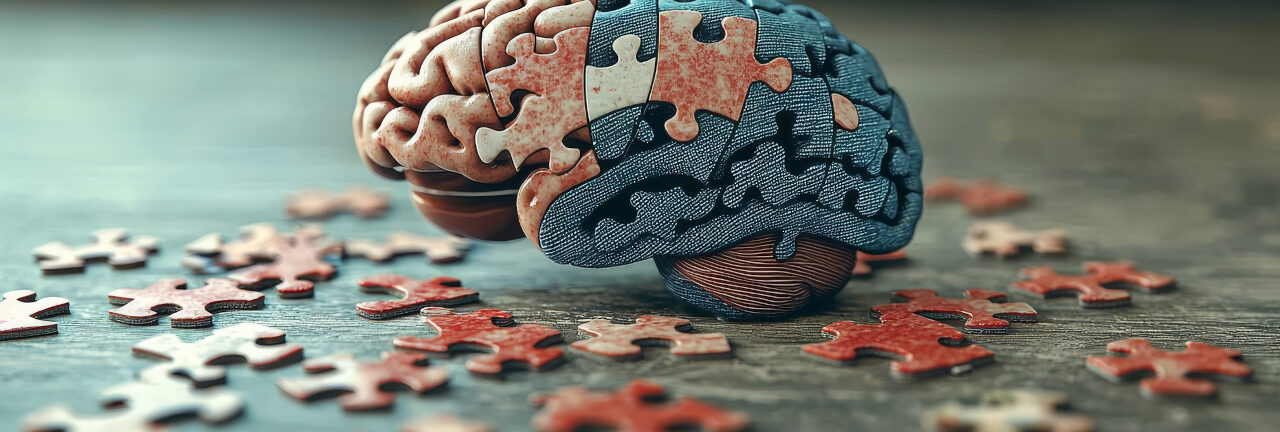Depression is a complex and highly subjective mental health condition. It does not have a single cause and symptoms often differ among those affected. Depression affects mood, memory, perception, behavior and physical as well as mental and emotional wellbeing. A sad mood, loss of interest in normal activities, fatigue and sleep disturbances are common signs of depression. But, could depression be caused by a chemical imbalance?
Depression is often treated with medication and psychotherapy. Lifestyle changes such as proper sleep and nutrition, exercise and stress reduction strategies like work life balance and meditation or mindfulness practice are also recommended.
Researchers currently believe that complex interactions involving genetics, stress, trauma, lifestyle choices and personality as well as brain structure, brain biology and the mechanics of nerve cell interactions are all factors that contribute to the development of depression.
Complex interactions at the cellular level such as the growth of new nerve cells, their connectivity to one another and the way that nerve cells transmit information amongst themselves play an important role.
Is Depression Caused by a Chemical Imbalance?
Neurotransmitters are chemicals produced by nerve cells that transmit signals from one nerve cell to another. The role they play in the origin of depression has been an area of intense study since the late 1960s.
From that time through the late 1990s the prevalent belief among researchers was that a chemical imbalance between several major neurotransmitters (serotonin, dopamine and norepinephrine) led to depression.
The public quickly accepted the idea that there was a link between brain chemistry and depression. This was mostly due to the emergence of new antidepressant medications such as selective serotonin re uptake inhibitors (SSRIs) that increased the amount of the brain chemical serotonin available to cells.
Logic dictated that if lowered levels of serotonin lead to depression then increasing levels of serotonin in the brain should relieve depression.
SSRIs do increase the availability of serotonin in the brain because they prevent the reabsorption of excess serotonin back into nerve cells during chemical communication transfers. SSRI antidepressant medications were considered a safer alternative to other antidepressants when they first came on the market because they had fewer side effects.
They became widely prescribed and they are still widely used today. In the U.S. about 10% of the population takes antidepressant medication and SSRIs are the most often prescribed antidepressants.
Is depression a chemical imbalance only? SSRIs may work successfully for most people but the chemical imbalance hypothesis has been challenged over the years. One article shows that many modern researchers consider early studies supporting the theory to be flawed and the conclusions too simplistic and incomplete.
It is now believed that low levels of serotonin, dopamine or norepinephrine are not the single or direct cause of depression.
Such deficiencies are now believed to be just one component in a web of complex interactions between these chemicals and other neurotransmitters. Biological and structural factors are also involved.
Recent theories of depression consider the role that brain structural changes, new brain cell growth, stress and inflammation and psychological factors such as learned helplessness and vulnerability may play in the development of depressive symptoms.
The definitive role of neurotransmitters in depression remains today an unanswered question that is further obscured by the difficulty of obtaining accurate neurotransmitter measurements within the brain.
The chemical imbalance theory for depression still has support but that support now exists within a broader perspective. The complex interactions of multiple factors now believed to be involved in the onset of depression will require more time and research before this mental health condition can be fully understood.
What Are the Symptoms of Depression?
Depression is a condition that affects mood and emotions. It can create feelings of sadness or loss of interest in normal activities or common experiences. Some depressive symptoms are mild and may only result in a few days of feeling blue or unmotivated. Others can be severe and indicative of major or clinical depression that should be treated.
An excerpt from The Diagnostic and Statistical Manual fifth edition published by the American Psychiatric Association describes symptoms of clinical depression as including:
- Sad mood including feelings of emptiness or hopelessness
- Loss of interest in activities previously enjoyed
- Insomnia
- Weight gain or loss
- Fatigue
- Inability to concentrate
- Inappropriate guilt or feelings of worthlessness
- Thoughts of death or suicide
Clinical depression describes a sad or depressed mood or the loss of interest in previously pleasurable activities that lasts for two weeks or more and is experienced along with several of the other symptoms listed above. A mental health professional can screen for clinical depression using a depression assessment.
Depression symptoms can be treated with medications, psychotherapy and positive lifestyle changes such as exercise, stress reduction strategies and proper nutrition. A combination of medication and psychotherapy are often recommended for the treatment of major depression.
Dopamine, Norepinephrine and Serotonin
Dopamine is associated with seeking and feeling pleasurable sensations. It imprints pleasurable sensations as memories that are rewarding which encourages pleasurable activities to be repeated. Dopamine also regulates motivation and helps with concentration.
Low levels of dopamine are associated with several depression related symptoms such as reduced motivation, trouble concentrating and loss of interest in previously enjoyed activities.
Norepinephrine modulates stress and plays a significant role in regulating executive functions such as thinking, planning and problem solving. Norepinephrine can become depleted with chronic stress. Some studies have linked depleted norepinephrine levels with symptoms of depression.
The neurotransmitter serotonin affects mood and sleep and stabilizes brain function. It is produced in the brain and the intestines or gut. Serotonin helps regulate the sleep wake cycle. Low levels of serotonin or dysregulation of serotonin levels are associated with risks for anxiety and depression.
Where Can I Find Information About Depression Treatment?
The Substance Abuse and Mental Health Services Administration (SAMHSA) is an excellent resource for finding more information about treatment for depression. They offer free assistance in locating depression treatment center options.
You can find help through their facility search tool or by phone through SAMHSA’s National Helpline. The free phone helpline is confidential and available any time of day for 365 days a year.
The National Alliance of Mental Illness (NAMI) offers educational resources, support and advocacy for people affected by mental illness. Around 700 state and local NAMI organizations host free support group meetings and educational programs for people with mental illness, their friends, family and other allies.
The Depression and Bipolar Support Alliance (DBSA) also holds support group meetings nationwide. You can find a list of in person and online support group meetings on the DBSA website as well as links to educational materials on topics of depression, anxiety, bipolar disorder and co-occurring addiction and mental health disorders.
If you need referral assistance then be sure to reach out to your doctor or mental health therapist. Recovery directory websites such as the online rehab database at Rehab.com can also provide valuable resources and connections.
What Are the Treatment Options for Depression?
Options for the treatment of depression include inpatient treatment, outpatient treatment and aftercare.
Inpatient Treatment or Residential Treatment
Inpatient facilities for depression and other mental health issues provide a structured environment with 24/7 medical care and supervision. They typically provide psychotherapy in individual and group formats. Medication is provided when needed.
Some facilities offer specialized options for treatment resistant depression such as transcranial magnetic stimulation that uses magnets to stimulate neuronal activity, electroconvulsive therapy that uses electrical currents to alter neural pathways and reset brain activity and deep brain stimulation. This is a procedure that involves surgically implanting electrodes into brain areas that are associated with depression. Electrically stimulating these areas can alter neural circuits and help regulate mood.
Outpatient Treatment
Outpatient care for depression involves regularly scheduled meetings that take place at a clinic or rehab facility. It does not involve overnight stays. Outpatient treatment is appropriate for people who do not require intense supervision or monitoring. Outpatient programs for depression can vary in intensity and may include partial hospitalization, intensive outpatient and general outpatient programs.
Partial hospitalization programs typically provide 20 or more hours of individual and group counseling per week that take place over four to six days. Each program typically runs for two to three weeks. Intensive outpatient programs typically offer nine to 20 hours of treatment per week spread over three to five days. Some programs meet in the evenings and on weekends to accommodate participants’ work or school obligations.
A minimum duration 90 days is recommended for intensive outpatient programs but some can run for several months or more. Individual outpatient sessions are scheduled according to need and may take place once or twice a week.
Outpatient depression treatment usually involves talk therapy such as cognitive behavioral therapy. Sometimes dialectical behavioral therapy that teaches emotional regulations skills is provided as well. Outpatient treatment for depression may be available as part of an addiction rehab program for dual diagnosis treatment.
Aftercare
Aftercare involves continuing care that begins after a depression treatment program has ended. It typically includes alumni meetings and social events at the facility where the program took place. Additional scheduled counseling sessions, when needed, may be part of aftercare. Aftercare may last up to a year or more after treatment.


